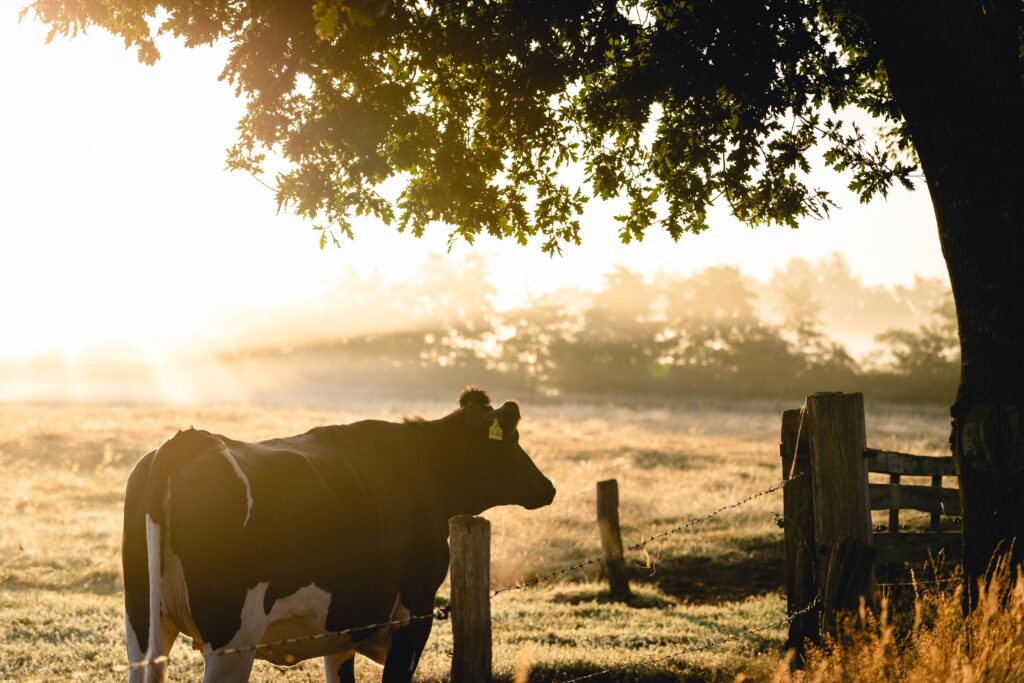
In a world where individual liberties seem to be eroding at an alarming rate, it is crucial that we stand up for our rights, especially in the most basic aspects of our lives. One such battleground is the meat industry, where legislation has created oligopolies that limit our choices and freedoms. Matt Smith, a decorated military veteran, understands the importance of fighting for our liberties, having witnessed firsthand the consequences of misguided policies. His support for the PRIME Act reflects a deep commitment to preserving our fundamental rights.
The Wholesome Meat Act of 1967: A Disastrous Turn of Events
In 1967, the Wholesome Meat Act was passed, imposing stringent regulations on the slaughter and processing of animals for meat sales. Under this act, an inspector must be present during these processes, effectively restricting custom slaughterhouses and processing facilities. This legislation paved the way for the consolidation of power in the beef and pork industries, creating monopolies that dictate the choices available to consumers.
The PRIME Act: An Antidote to Oligopoly
The PRIME Act is a beacon of hope in the battle against this monopolistic control. This act seeks to lift the federal ban on the sale of custom meat, offering a lifeline to smaller, custom facilities. Consider that from 1967 until to now, it was perhaps a design intent of the law to prevent neighbors from simple sharing without the presence of an on-site inspector during slaughtering and processing. What does this imply? Government forbid we manage our own food supply.
Matt Smith: A Champion of Freedom
Matt Smith’s support for the PRIME Act is rooted in a deep understanding of the consequences of ill-conceived policies designed to harm Americans. His experience in the military, where he witnessed the repercussions of flawed strategies, has driven him to advocate for more sensible and just legislation. Smith’s resilience and dedication were evident on June 8th, 2013, when he displayed extraordinary courage in the face of adversity. Despite being shot by the people he was ordered to train, Smith demonstrates a commitment to the sanctity of all life and the importance of preserving basic freedoms for everyone.
The Failed Policy in Afghanistan: A Lesson in Misguided Leadership
Smith’s experience in Afghanistan serves as a stark reminder of the consequences of misguided policies. The arming and training of Afghan soldiers, a policy endorsed by senior military leaders, ultimately led to tragic consequences. Smith’s firsthand account of the events highlights the urgent need for critical evaluation and reformation of policies that impact the lives of countless individuals.
Reclaiming Our Liberties through the PRIME Act
In a world where our freedoms are under constant threat, the PRIME Act emerges as a crucial step towards reclaiming control over our choices, particularly in something as fundamental as our food supply. Matt Smith’s support for this act is a testament to his unwavering dedication to the preservation of our liberties. By advocating for the PRIME Act, we not only challenge the status quo but also take a vital step towards a more just and equitable society. It is imperative that we rally behind this cause, for the PRIME Act is not merely a piece of legislation; it is a beacon of hope for a future where our freedoms are protected and our choices respected.
Action to Take
Call and/or email your U.S. Representative and both your U.S. Senators and ask to sign onto HR 2814 / S907, if they have not already done so (tap the bill links below to see list of cosponsors). Calls are best.
HR2814 – https://www.congress.gov/bil l/118th-congress/house-bill/ 2814/cosponsors
S.907 – https://www.congress.gov/bil l/118th-congress/senate-bill/ 907/cosponsors
You can look up who represents you at https://www.congress.gov or call the Capitol switchboard at 202-224-3121.
Talking Points
1. Passage of the PRIME Act would better enable farmers to meet booming demand for locally produced meat. Right now in parts of the country, farmers have to book a slaughterhouse slot as much as 1-1/2 to 2 years out. Moreover, farmers often have to transport their animals several hours to a slaughterhouse, increasing their expenses and stressing out the animals which could affect the quality of the meat. Passage of the PRIME Act would significantly increase access to local slaughterhouses.
2. Passage of the PRIME Act would improve food safety. Anywhere from 95% to 99% of the meat produced in the U.S. is slaughtered in huge facilities that process 300–400 cattle an hour. It is difficult to have quality control in the plant under those conditions no matter how many inspectors are present. The records bear this out. According to CDC statistics from 2005–2020, there were thousands of foodborne illnesses from the consumption of beef and pork. The big plants process more animals in a day than a custom house would in a year. There is better quality control in a custom slaughterhouse, inspector or no inspector. A 2020 FOIA request to USDA, seeking the number of foodborne illnesses from 2012 to 2020 attributed to the consumption of meat slaughtered and processed at a custom facility received a response from USDA that it had no record of any such illnesses. Custom operators have every incentive to process clean meat. Where a lawsuit against a big plant is just a cost of doing business, one lawsuit can easily shut down a custom house.
3. Passage of the PRIME Act would improve food security. Supply chain breakdowns and labor shortages have made the food supply more vulnerable. Passage of the PRIME Act would improve food security by increasing the local supply of quality meat, food that for most of us is critical for a healthy diet.
4. Passage of the PRIME Act would not be competition to the conventional meat industry; the meatpacker and small farms have mostly different markets. One sells mainly into the export market and big supermarket chains; the other sells into local communities direct to consumers and small mom-and-pop stores.
5. Passage of the PRIME Act would keep more of the food dollar in the state and community. The big food corporations send much of the money they earn out of the state; more of the money that local farmers, ranchers and custom house operators earn would circulate within the state and community, strengthening the local economy.
6. The PRIME Act would create jobs. More custom slaughterhouse operations would start up if meat from those facilities could be sold by the cut. Many of the people who would be starting up a custom operation are not interested in operating a federally inspected slaughterhouse; both expenses and red tape are much greater for the latter.
7. The PRIME Act would improve animal welfare; most farmers would not have to transport their animals as far a distance if they could take them to a custom house. This would result in less potential for injury. Animals overall are treated more humanely in custom facilities than in USDA facilities, in many of which thousands of animals are slaughtered and processed per day.
8. Passage of the PRIME Act would benefit the environment by reducing the carbon footprint in the transport of animals to slaughterhouses. The majority of farmers live closer to a custom slaughterhouse than to an inspected facility.

